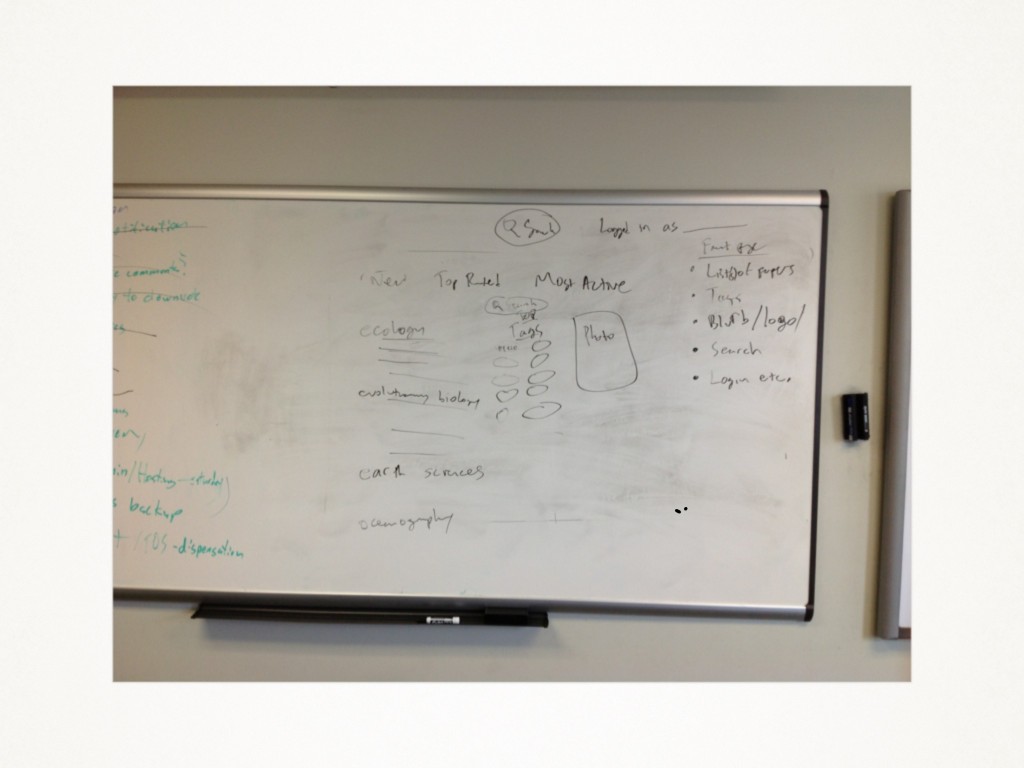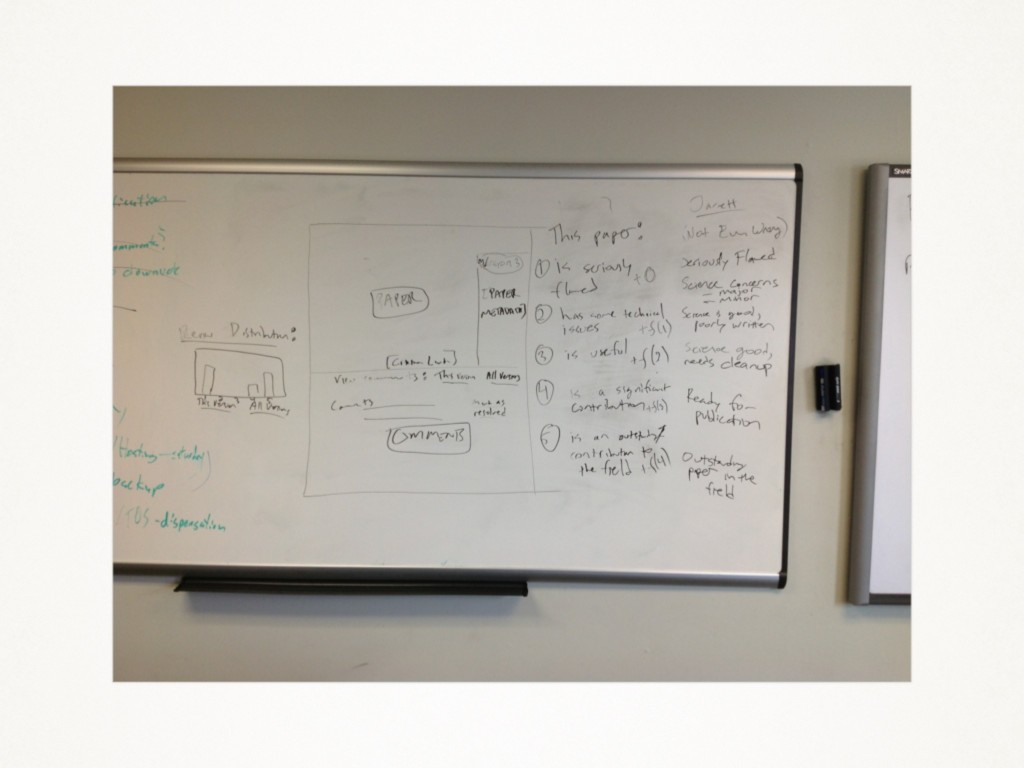We’ve wrapped up the second meeting of the NCEAS Future of Publishing in Ecology, Evolution, & Evironmental Sciences working group, and it was tremendous. The group set out trying to merely examine issues of access in EEB (EEEB? or EEEOEB as we ended up expanding out to ecology, evolutionary biology, earth, ocean, and environmental sciences by the end – let’s just go with EEB for brevity). We soon realized that access alone is not the future, but rather opens up a wide range of other issues – from diversity of scholarly products to immediate access via preprints to the very review and discussion process itself. Indeed, we cemented four general principles that we feel must be addressed in the future of publishing fairly early on – a diversity of products besides just the narrative paper, immediate access to new work before even review, open review and commentary on that new work, and a robust system of reputation and recognition for participation in the publishing process. All of this leads towards a better underlying flow of information to aid people in the discovery of new work and new information – speeding along science at a faster clip.
The group has generated several products, some of which are still in progress, that all advance our goals of better understanding of the future of scholarly communication. Briefly, they are a special issue and new section in the journal Ideas in Ecology and Evolution; a survey of Editors in Charge regarding preprint practices to complement a crowdsourced exploration of what those practices are; a survey of EEEOEB scientists on their current publishing practices, and what they would like to see in the future; and last, an experimental preprint server that will test the community’s reaction to many of the ideas contained in that survey.
The Special Issue
We have launched a new section of Ideas in Ecology and Evolution on the Future of Publication. Chris Lortie is heading it up as section editor, and the section has already seen a number of thoughtful pieces ranging from Stefano Allesina’s piece on new ways of modeling peer review to Jeremy Fox taking on whether blogging can change how Ecologists share ideas. There are 5 more in the pipeline, so it’s a definite net win for this discussion.
The Survey
We finalized and launched our survey of scholarly publishing practices and needs during this second meeting after obtaining IRB approval and revising our survey questions to avoid ambiguity. The survey can be found at http://bit.ly/eebpublishing. In the first 24 hours, we received over 200 responses, and as of writing, are up to at least 550 click throughs. We’ve advertised on ECOLOG, evoldir, and AGU. Please, if you feel your community has not seen this survey yet, forward it around to your colleagues and any relevant mailing list.
We’ll be keeping it open for 2-3 months, at which time we will write up the results for publication. Should be interesting!
The OpenPub Project
Surveys and writing can only take us so far. As we identified the four pieces of the future of peer review we were most interested in seeing experimented with – a diversity of contribution types, immediate publication or preprints, open review and commentary on products, and a system for assessing the quality of participation – we realized the only way we could see if any of those ideas worked was to experiment with them.
And so, we are in the process of creating an experimental preprint server for the EEB community. Two of our working group members have significant experiment in development, and by this meeting have a toy version of the system up and running. There is much work to be done, and we spent much of this meeting nailing down a bare-bones feature set to test the ideas we’re most interested in. These include:
– Paper uploading
– Comments
– More Detailed Reviews
– Revision
– Stable Identifiers
– A Reputation and Karma System
– Discovery, Tagging, & Search
– User Pages
– Notification of action
Our tentative timeline is to have a beta together by September. We’re in the processes of finding funders and partners interested in the work so that we can fund continued development on our September timeline. Any suggestions are welcome. We have a sign up for an announcement list up now.
The idea behind the experiment is to engage our communities through a large-scale outreach campaign. Interested parties can sign up for the server, agreeing to a minimal level of participation, and agreeing to participate in a survey 6 months after joining. With the survey results, we hope to assess what works, what doesn’t, and what are some new avenues that we should be thinking about for the future of scholarly publishing.
We are currently reaching out to different journals and societies, letting them know about our efforts, and seeing if they have any interest in participating as partners, willing to accept both manuscripts and comments that have been posted on the server. Indeed, one of our goals here is to help existing journals by giving them better quality manuscripts and a ready pool of moderated opinions about the quality of the work.
If the experiment works, we hope that the server can continue on, providing a valuable service that is currently absent from the EEB community.


